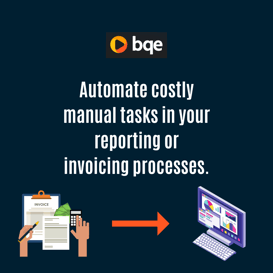With the Great Recession still fresh in the minds of many business owners, signs of a cooling economy are troubling, especially post-pandemic. Time will tell if the global economy officially enters a recession this year, but in the meantime, equip your firm with a strategy to be successful in any economic environment, whether a downturn or an upswing by creating a smart business strategy for a recession.
You can take steps to update your business strategy in response to current challenges and prepare for future ones. Keep reading to learn how to conserve cash, build customer loyalty, carefully plan marketing dollars, and reduce overhead costs.
Making Your Business Strategy Resistant to an Economic Recession
Improve Cash Flow
.png?width=391&height=978&name=steps%20to%20improve%20cash%20flow%20(1).png)
Cash flow problems are the number one reason businesses shut down, making cash flow management your top priority when the economy slows. To survive economic downturns, you need business processes that support strong cash flow, including:
-
Staying on top of receivables
-
Offering clients more ways to pay, including ePayments
-
Automating your invoicing for prompter payments
-
Reviewing profit margins to identify your most profitable services (these are the ones you should be marketing) and if you need to raise prices
Creating and sharing a cash flow forecast with your management team to anticipate when funds will be tight
The right business software makes it easy to know in real-time how much money you've invoiced, how much you've received, which of your projects are most profitable, and your overall financial performance. It also helps improve cash flow by setting up automatic invoicing to save time, receive more on-time payments, and boost client relationships.
Continue Marketing, but Review Your Marketing Budget
Many businesses are inclined to cut all advertising and marketing costs during rough patches. However, signs of a recession are not a reason to immediately slash your marketing budget. There’s data to support that you should continue marketing in tough times. Instead of pausing your campaigns, look for ways to stretch your marketing dollars and optimize existing initiatives.
The most cost-effective marketing strategies include:
-
Upselling and cross-selling to existing clients- they're 3x more likely to be upsold than a new client is to buy the same service!
-
Word-of-mouth referrals
-
Emails to leads using pre-created email newsletter tools
-
Engaging via social media
-
Creating a blog and keeping it updated
Once the economy improves, your investment in marketing will give you a leg up over comparable firms that pulled back. You’ll be more visible in the market, top of mind to potential clients, and better positioned to guide them toward working with you.
Examine Expenses
A vital way to prepare your firm for a recession is carefully reviewing expenses and looking for areas to cut costs. Be stringent about cost cutting, though; you don’t want to do anything that compromises quality and hurts your reputation.

Start small with cost-saving measures. What changes can you make that won’t drastically impact your processes and won’t be visible to clients? Can you renegotiate contracts with your vendors or downgrade some of your monthly subscriptions? Can you convince suppliers to give you an early-pay discount? Another option is to automate costly manual tasks in your quote/proposal, reporting, or invoicing processes.
Use BQE CORE to identify cost-cutting opportunities by tracking business expenses in a personalized platform. Your centralized dashboard offers insight into expenses, profitability, budgets, and more. Having data tied to costs and billing in one place allows you to set client payment due dates before your own recurring expenses are due.
Invest in Client Relationships
It’s worth the effort to take good care of your existing customers. After all, they’re the ones who will stick with your firm during hard times. Keeping existing customers is much easier and more cost-effective than finding new ones. In fact, it can cost 5x more to acquire a new client versus keep an existing client.
It pays to offer additional value to existing clients, like discounts and loyalty programs that reward repeat business. Fifty-six percent of consumers say they’re more likely to spend money with a company that has a loyalty program.
Keep Up Employee Morale
In a looming recession, job loss is a fear that’s top of mind for many employees. While you want to keep your costs low, remember that your team is your most valuable asset. If you think about replacing employees with lower-cost, short-term contractors, keep in mind that on average, it costs a company 6-9 months of an employee's salary to replace them.
So, do what you can to reassure team members that their jobs are safe and your business is well-positioned to succeed? You can improve employee morale by giving them recognition, growth opportunities, perks, and more autonomy.

Happy workers are more productive workers. Rather than looking for new hires, focus on developing existing employees' skills. Investing in employees shows them you believe in their potential, makes your company more flexible, and allows you to avoid turnover costs.
Strengthen Cash Reserves
Financial advisors often recommend that businesses have 6-12 months of operating expenses on hand to help survive difficult periods, whether an economic crisis or another unplanned event. If you haven’t already, create an emergency fund and build it up to cover at least six months of essential costs like payroll and utilities.
To grow your firm's nest egg, consider saving excess profits instead of reinvesting them into your business, even temporarily. Healthy savings make it easier to get an operating loan or to negotiate an extension on your existing debt repayment. It’s strongly recommended that you consult a licensed professional for your specific financial situation.
Differentiate Your Firm From the Market
You'll likely need specialization and diversification to weather an economic downturn. How can you make your firm stand out from similar companies in at least one area? What can you offer the market that's missing? What do you need to learn to make your company more relevant to the current market?
This will require some specialization. Niching your services isn’t easy, but clients will be more likely to support your business if you do it well. Look for overlap between your skills, passions, and the current market to discover differentiation opportunities. At the same time, consider how you might diversify by adding flexibility to your project delivery methods, utilizing new technologies, and expanding your network.
Insulate Your Company with Data-Driven Software
While it’s impossible to make your firm completely resistant to the effects of a recession, you can take steps to minimize the impact. Focus on being smarter about your spending, creating high-impact marketing investments, and making more calculated, data-backed decisions about your business.
To easily access the data you need, use firm management software like BQE CORE, which helps you collect, manage, and analyze information to make your company more profitable. In one place, plan, execute, and forecast project-based work while accessing time-saving automations and the tools you need to be agile. Project management, accounting, billing, KPI visibility, and more are available in BQE CORE.
Learn more about how BQE CORE can help you develop a smart business strategy during a recession by keeping your projects more profitable, improve cash flow, and let you view your overall financial performance. Try a free demo now to see just why other firms are finding massive success since switching to BQE CORE.